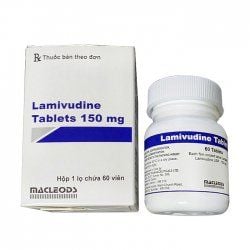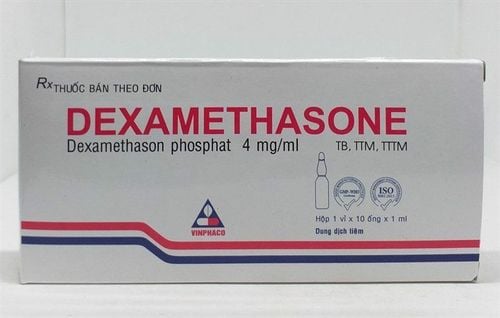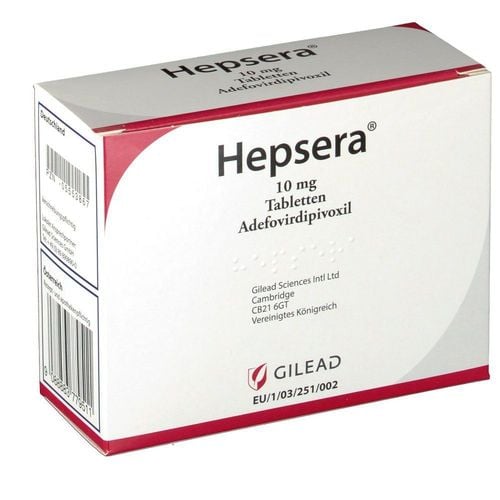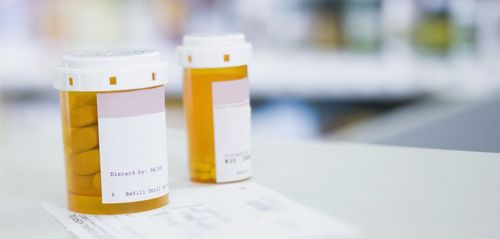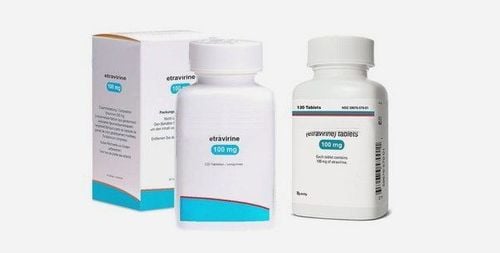This is an automatically translated article.
Zefdavir drug containing active ingredient Lamivudin is indicated in the treatment of chronic hepatitis B with evidence of reverse transcriptase and in combination with other drugs in the treatment of HIV... Learn about the uses, the notes when using Zefdavir through the article below.
1. Uses of the drug Zefdavir
“What is Zefdavir?”. Zefdavir contains the active ingredient Lamivudin 100mg and is available in the form of a film-coated capsule.
Active ingredient Lamivudin belongs to the group of antiretroviral dideoxynucleosides, acting by the mechanism of inhibiting the reverse code of viruses. In the body, Lamivudin is converted to 5' - Tri - Phosphate structurally similar to Deoxycytidine Triphosphate which is a substrate for reverse transcriptase. Lamivudin has competitive activity with natural Deoxycytidine Triphosphate for entry into viral DNA, by reverse transcriptase, which results in premature termination of viral DNA synthesis. The spectrum of action of Lamivudine on hepatitis B virus, HIV virus types 1 and 2.
Zefdavir is indicated in the following cases:
Chronic hepatitis B with evidence of viral replication Combined with at least 1 Dideoxynucleoside inhibits reverse transcriptase in the treatment of HIV infection.
2. Dosage of the drug Zefdavir
The recommended dose of Zefdanir 150 in the treatment of HIV infection is as follows:
Adults and adolescents over 16 years:
Patients weighing more than 50 kg: Take 150mg Lamivudine and 300mg Zidovudine, repeat the dose after 12 hours; Patients weighing less than 50 kg: Take 2mg Lamivudine/kg body weight and 4mg Zidovudine/kg body weight, repeat the dose every 12 hours. Adolescents from 12 to 16 years old:
Patients weighing over 50kg: Take 150mg Lamivudine, 300mg Zidovudine repeat the dose after 12 hours; Patients weighing less than 50 kg: There are no adequate clinical data on the effectiveness of the drug in this subject. Children from 3 to 12 months: Oral Lamivudine 4mg/kg body weight, repeated every 12 hours and up to a maximum of 300mg/day.
Patients with renal failure should be appropriately reduced dose based on Creatinine clearance:
Creatinine clearance from 30 to 49ml/min: Take 150mg/time/day; Creatinine clearance from 15 - 29ml/min: Oral 150mg/time/day in the first day, maintenance dose in the following days is 100mg; Creatinine clearance from 5-14ml/min: Oral 150mg/time/day in the first day, maintenance dose in the following days is 50mg; Creatinine clearance less than 5ml/min: Take 50mg/time/day on the first day, the maintenance dose in the following days is 25mg. The recommended dosage of Zefdavir in the treatment of chronic hepatitis B is as follows:
Adults: Take 100mg/time/day; Children over 2 years old: Take 3mg/kg/day, the maximum dose is not more than 100mg/day; Patients with renal failure: The dose of the drug used should be monitored by the treating doctor; Patients infected with HIV and chronic hepatitis B virus simultaneously: The recommended dose is the same as for HIV treatment.
3. Side effects of the drug Zefdavir
Zefdavir can cause some unwanted effects as follows:
Common: Irritability, insomnia, headache, dizziness, depression, fever, chills, vomiting, nausea, diarrhea, boredom eating, abdominal pain, dyspepsia, peripheral neuropathy, increased amylase, paresthesia, arthralgia, myalgia, nasal symptoms, skin rash, cough, anemia, neutropenia, increased ALT and AST ; Uncommon: Thrombocytopenia, pancreatitis, increased plasma bilirubin. Patients should stop taking Zefdavir and notify their doctor immediately if they experience clinical symptoms of unwanted effects.
4. Precautions when using Zefdavir
4.1. Contraindications Contraindicated to use Zefdavir in the following cases:
People with severe kidney disease; Hypersensitivity to Lamivudine or any of the ingredients in Zefdavir. 4.2. Precautions while using Zefdavir The combined use of lamivudine and zidovudine in patients with a history of pancreatitis or with risk factors for pancreatitis requires close monitoring. In case of clinical symptoms or laboratory results suggesting pancreatitis, the drug should be discontinued immediately.
Patients with impaired renal function, children under 12 years of age and adolescents weighing less than 50 kg should not use the combination of Zidovudine and Lamivudine.
Zefdavir does not reduce the risk of HIV transmission, so patients should be advised to use condoms to protect their sexual partners.
For pregnant women: Lamivudine can be used in the treatment of pregnant women, especially to protect the patient from the risk of infection to the fetus. However, the combined use of lamivudine and zidovudine is not recommended in pregnant women.
For lactating women: There are no studies to prove whether Lamivudine is excreted in breast milk. The risk of HIV transmission to a nursing infant is high, so HIV-infected mothers should not breastfeed.
5. Zefdavir drug interactions
Zefdavir may cause some interactions as follows:
Zidovudine plasma concentrations are significantly increased when co-administered with Lamivudine; Lamivudine bioavailability was increased by 44% and renal clearance was decreased by 30% when co-administered with Trimethoprim/Sulfamethoxazole; Although AUC was not significantly affected, absorption of Lamivudine was slowed and plasma concentrations were 40% lower when patients took the drug on a full stomach compared with fasting. Drug interactions occur that increase the risk of having an effect and reduce the therapeutic effect of Zefdavir, so to ensure safety and effectiveness in treating patients, it is necessary to inform the doctor about the drugs and foods that are being used. used before taking Zefdavir.
Above is important information about Zefdavir, before using, patients need to carefully read the instructions for use and follow the instructions of the doctor to achieve the best treatment results.
Please dial HOTLINE for more information or register for an appointment HERE. Download MyVinmec app to make appointments faster and to manage your bookings easily.




